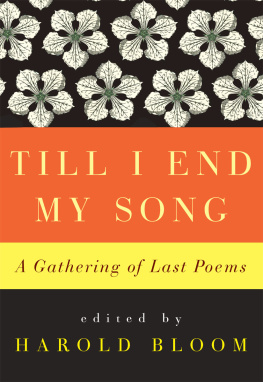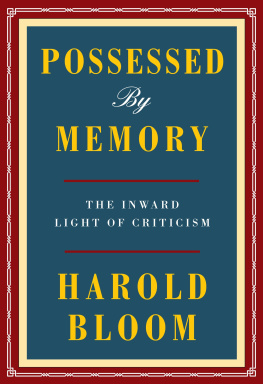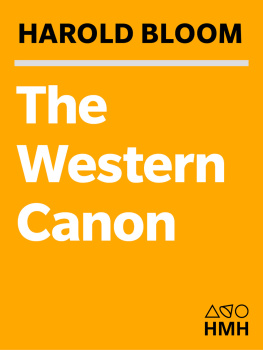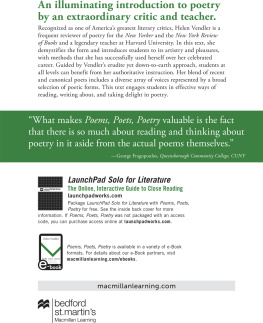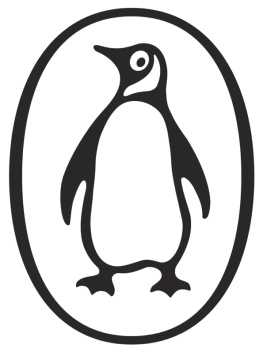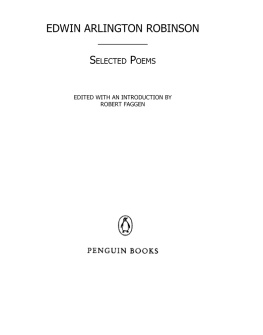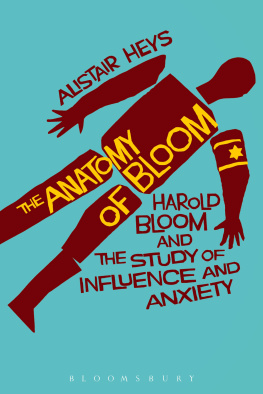T here are three kinds of last poems in this anthology. Some literally are the final poems these women and men composed. Others were intended to mark the end, though the poet survived a while longer and continued to work. A third group consists of poems that seem to me an imaginative conclusion to a poetic career. With all three kinds I have made an aesthetic judgment: everything in this volume is here because of its artistic excellence. By definition, all living poets are excluded from this book.
Myself seventy-nine years of age, I grieve still for many of these poets who were my friends. But knowledge, not pathos, is my purpose in gathering this anthology. Lastness is a part of knowing. How to represent the greatest of poets? The Tempest proved not to be William Shakespeares last play. But his friends and fellow actors, who put together the First Folio in 1623, seven years after his death, chose to lead off the book with The Tempest, which they regarded as a comedy. All through the nineteenth century and early twentieth century, common readers heard in Prosperos farewell to his magical art an intimation of Shakespeares abandonment of the creation of shadows of reality for the stage.
I stand with the common auditor and I hear in Prosperos measured leave-taking the overtones of Shakespeares voluntary departure. John Milton, second in splendor only to Shakespeare, has no final lyric or overt elegy for the self, but I tend to disbelieve scholars who date Samson Agonistes as an earlier Miltonic work (16471653), since they present only unimaginative surmises. The traditional dating (16661670) seems to me consonant with the spirit and temper of this dark dramatic poem, most of which reads to me as having been composed after Paradise Lost. In May 1659, the blind poet went into hiding to escape the furies of the royalist Restoration. Arrested in October, he was released only in mid-December, and the ordeal had to have been considerable. Triumph and tragedy fuse in Samson Agonistes.
Even if it first was drafted in 1647, we can assume recasting well after the death of Cromwell, whose poet fell upon evil days, hemmed about by vengeful enemies. In effect, Samson Agonistes is Miltons last poem, and Manoas heroic refusal to lament his son finds a legitimate place in this book. Last poems by no means are to be identified with death poems, though the genres (to call them that) overlap. Strong poems are composed against death though not against dying. My distinction reflects the influence upon me of the sage Epicurus and of his poetic disciple, Lucretius. There is a Lucretian tradition of poetry in English, which proceeds from John Dryden on to Percy Bysshe Shelley and Lord Byron, and then emerges from repression in Alfred Lord Tennysons dramatic monologue Lucretius, before passing on to Algernon Charles Swinburne, and then culminating in the Americans Walt Whitman and Wallace Stevens.
The Epicurean critic Walter Pater, though dismissed by T. S. Eliot, became the hidden source of literary modernismJames Joyce, Ezra Pound, Virginia Woolf, Eliot himself, and overwhelmingly W. B. Yeats and Hart Crane. Epicurus and Lucretius had many ambitions, but the largest was to free us from fears of death, which for them in itself was nothing at all.
Liberated from heaven and hell, purgatory and limbo, we were to benefit from the demythologizing of death, be it magnified by pagans or by Christians. Dying comes to all, but death to no one. What Stevens called the mythology of modern death seems to have little force in the twenty-first century, which follows the century of the Holocaust and of other unforgivable barbarities. In so bad a time, when nations and religions alike begin to seem organized incoherences, Lucretian poems are refreshing in their difference. The central image for freedom in Lucretius is the clinamen or sudden swerve. As the atoms in the cosmos fall downward and outward they capriciously swerve, and this change in direction provides for our freedom of will.
Last poems, as I read them, execute clinamens in regard to a previous poetic career. They assert a final freedom for the imagination even when they are death poems. Death poems, as a term, is oxymoronic. As Yeats said, there is always a phantasmagoria, however desperate or extreme. I turn to Yeats as an illumination of the immutable paradox of last poems. Of the group generally regarded as Yeatss death poems, two seem among his finest, Cuchulain Comforted (included in this book) and Man and the Echo.
Equally powerful is the very late The Circus Animals Desertion, but that is not a death poem. Much weaker are the official self-epitaphs, Under Ben Bulben and The Black Tower. The very last poem was a slight effusion, Politics, in which the impending Second World War is brushed aside at the sight of a girl: But O that I were young again And held her in my arms. The sentiment is universal and admirable but does not require voicing by the major Europe an poet of the twentieth century. Since I comment very fully on Cuchulain Comforted in my headnote to Yeats, I look elsewhere for his magnificence at conveying lastness. All through the poems of 1938 and 1939, he mingles a persuasive vision of a lifetime of highest service to the lyric Muse with vehement disclosures of his ongoing social attitudes.
Highborn, reckless horse men and properly respectful peasants are lauded, while the base-born commercial class are consigned by scorn to be ground under by what seems a violent, Fascist social order, which shall enforce eugenic cleansing. Few current readers of Yeats are much moved by these hymns to the indomitable Irishry, and simply shrug off such aristocratic pretensions. Arrogance and hatred are the wares, Yeats tells us, peddled in the thoroughfares in contrast to the innocence and beauty born out of custom and ceremony. A deep lover of Yeatss poetry has to accept that this nonsense nevertheless helped produce the memorable vision of The Second Coming: And everywhere the ceremony of innocence is drowned. Of the Last Poems of Yeats, Man and the Echo and The Circus Animals Desertion dismiss all such claptrap, while Cuchulain Comforted can be read in the manner of Conor Cruise OBrien, who found in that great poem a prophecy of the death of Fascism. Unlike T. S. S.
Eliot, Ezra Pound, and Wyndham Lewis, Yeats rejected anti-Semitism, a spiritual disease repudiated more firmly by James Joyce and by Samuel Beckett. Devoutly Christian poets confront the same problems in composing last poems that all devotional verse must surmount: where faith is fixed, how much space remains for invention? Dr. Samuel Johnson argued: The good and evil of eternity are too ponderous for the wings of wit. The mind sinks under them, content with calm belief and humble adoration. Though I welcome the best of devotional poetry, it is rarely achieved. John Donne, dean of St.
Pauls, and not the youthful libertine of Songs and Sonnets, is a grand exception, and is represented here by his sublime last poem, A Hymn to God the Father. T. S. Eliot and W. H. Auden, neo-Christian by conversion, are not at their best in devotional verse, and find their place in this book with secular finalities.
Gerard Manley Hopkins composes a last poem to his closest friend, the laureate Robert Bridges, but the burden is a paean to the lost, Keatsian inspiration. When I stand back to reflect upon these hundred poems, ranging in time from Edmund Spenser, who died in 1599, to recently dead friends and acquaintances, including A. R. Ammons, Anthony Hecht, Kenneth Koch, and James Merrill, among others, my first impression is variety. Perhaps all authentic strong poems are last in that the intrinsic purpose of each is to make the next poem by the same poet possible. The inner paradox of lastness is the undersong: Let this be the next to the last! A number of superb poets are not represented in this anthology because I could not locate in them a distinguished last poem in any of my three senses.

